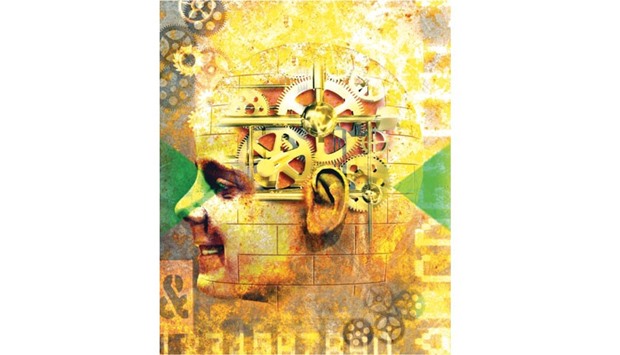
Staying focused on an immediate task or on long-term goals can be more difficult for some than for others.
Difficulty focusing does not mean you have ADHD or dementia - it means you are only human - but many people associate forgetfulness with getting older or see difficulty concentrating as a diagnosable disorder.
I believe that many people who are on medications for this may be taking them unnecessarily.
We all have the ability to improve our focus - and rather than stress over whatever task needs to be done - you can use mentally challenging moments to increase your self-reliance as well as your focus.
I don’t think I know anyone who hasn’t walked into a room and forgotten what or why they went into the room in the first place.
Look, this is a very common human thing. Of course, if it happens daily, you need to get checked out.
It is wise to be concerned about your mental health, but adding more worry and stress won’t help. So get a checkup, find out for sure that you are normal, and then you can concentrate on getting your mind where you want it to be.
For most of us, difficulty focusing can be attributed to the kind of confusion that sets in when we have too much on our minds. And who isn’t going through that?
I saw a research study that said we think of seven (plus or minus two) things at the same time. So we are always thinking of at least five things at once, and maybe as many as nine.
If you consider this normal for you, it makes sense that you will forget things, because your mind is going 110 miles per hour, and you can miss things at that speed.
So maybe the answer lies in just moving a little slower and giving yourself the benefit of the doubt.
One of the exercises I have used for years - especially whenever I forget what I went into the office for - is to simply stand there, refrain from getting frustrated (especially at myself), and breathe while asking myself what I needed.
I mentally put myself back wherever I was before I got up to get this thing I’ve forgotten, and I mentally retrace my steps. And it works almost every time.
If you allow yourself to relax, you will find it easier to get in touch with your memory and your direction.
Tensing up does just the opposite, so be easy on yourself and go gently, and you will find what you were looking for. Yes, it can be that simple.
Our memories can play tricks on us, and sometimes we don’t have total recall, but once you put yourself in a mental position to receive information rather than hunt for it, the knowledge will come more quickly and easily.
There are now many websites and devices that can help you improve your brain function, and the sooner you engage in these exercises or games, the better you will be in the long run.
If these online tools are not to your taste, you can try crosswords or memorising poetry or even taking up a foreign language to keep that brain of yours razor sharp.
The truth is that the more you use your mind, the less likely you will lose it.
- Dr Barton Goldsmith, a psychotherapist in Westlake Village, California, is the author of The Happy Couple: How to Make Happiness a Habit One Little Loving Thing at a Time. Follow his daily insights on Twitter at @BartonGoldsmith, or e-mail him at [email protected]
